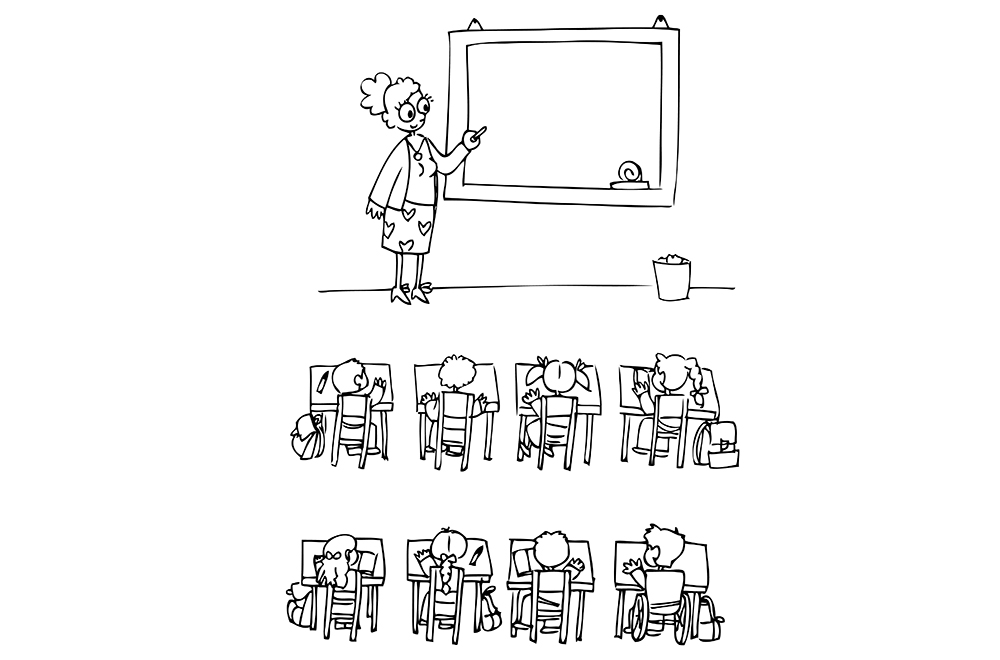“It’s like people you see sometimes, and you can’t imagine what it would be like to be that person, whether it’s somebody in a wheelchair or somebody who can’t talk. Only, I know that I’m that person to other people, maybe to every single person in that whole auditorium. To me, though, I’m just me, an ordinary kid.” From Wonder, a children’s novel by R.J. Palacio.
All children should be educated together as ordinary kids but in reality, we have a long way to go.
Despite a global movement towards inclusive education the New South Wales Government is increasing the placement of children with a disability, in particular children with an Autism Spectrum Disorder, in specialised programs according to Olivia Karaolis, inclusion consultant for Los Angeles Unified School District and Associate Faculty Santa Monica College and teaching artist at the Sydney Theatre Company.
Karaolis told F2L that before any discussion about the continuation of segregation it was important to reflect on the school experience of children with disability.
“Imagine that for your entire school career you remain in the same class for up to four years. Add to that, the same teacher for potentially all of those four years and classmates that may be three to four years younger or older than you. Classmates typically will be boys and the most likely thing you will have in common is the fact that you all have a disability. Although your classroom is located at a local public school, you may have lunch at different times than the rest of the school. There is a good chance you will not attend school excursions, sporting events, musicals or camp because this may be too ‘overwhelming’ for you and you might cause a ‘disruption’.
“Imagine for a second how it feels to be left out of the daily activities most folks take for granted and not attend graduation or go to the school library. What kind of message would this send to you and to your family?”
Karaolis said while she understands that many of the reasons to exclude students from general education and extracurricular events are done out of the interest for a child’s wellbeing and safety, the overall result is one that perpetuates ableism, that favours those without a disability.
Ableism is ingrained in our culture, she says, “Its presence is often in ways that we do not want to acknowledge or recognise. As teachers we continue ableism every time we lower the expectations we have of ourselves and our students to be educated together and decide that a child would be better placed in a classroom other than our own. It should not be enough that we are excellent teachers for most children. We need to be committed to the education of all children.”
Karaolis predicts the movement towards true inclusion will gain momentum in Australia and be led by teachers. “The landscape of our classrooms will be reconsidered and take on a new form. Assumptions about special education will be challenged when we look at children as capable and able to play a central role in their own learning, regardless of learning differences. Once we see children through this sense, our teaching practices will change and inclusive education transformed. Teachers will seek the knowledge they need from other educators, parents and individuals with a disability resulting in challenging and meaningful educational environments.
“Our field will demand better pre-service teacher training and collaboration with others to meet the needs of all students. We will create inclusive settings by the relationships we build between children in our classrooms. Tough questions about disabilities will be answered with honesty and every child will feel safe and supported. Special education will be less about labels and focus more on early intervention and the provision of extra support to ensure participation and belonging for everyone. Just like any ordinary kid.”
Karaolis, who is a speaker at the ATSA Expo in Melbourne, is completing a PhD in Research in Inclusion at the University of Sydney.
For more information visit:
http://allmeansall.org.au/nsw-moves-increase-segregation-students-disability/
http://alana.org.br/wp-content/uploads/2016/12/A_Summary_of_the_evidence_on_inclusive_education.pdf

